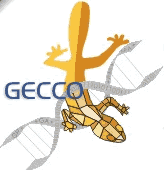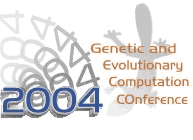

June 26 - 30, 2004
Saturday to Wednesday
Seattle, Washington, USA
Session: |
GSW - Graduate Student Workshop |
Title: |
A Case Study of GP and GAs in the Design of a Control System |
Authors: |
Andrea Soltoggio |
Abstract: |
The design of a robust control system is considered using a traditional approach, a genetic programming and a genetic algorithm method. Initially, an existing GP-evolved control system is reproduced and compared to a traditional PID in order to identify its advantages and drawbacks. A set of unspecified control constraints explored by the GP search process is found to be the cause of a better performance. Hence, giving a better constraints specification, a genetic algorithm is used to evolve an alternative controller. A PID structure is used by the GA to tune the controller. Simulations show a significant gain in performance thanks to a more aggressive and complete exploration of the search space within the constraints. The effectiveness of the two methods compared to the traditional approach is discussed with regard to performance, complexity of design and computational viability. |
HomeProgramSearchAuthor Index
SponsorsCommitteeContact Us
